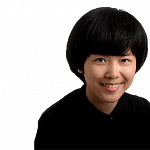-
BOOK IT / BORDERLANDS
-
WHERE: Sota Studio Theatre, 1 Zubir Said Drive, School of the Arts
WHEN: Sept 15 to 17, 8pm
ADMISSION: $40 from Sistic (go to www.sistic.com.sg or call 6348-5555)
Singapore International Festival of Arts: Power of promise
Chinese pipa meets Uighur music
The Singapore International Festival of Arts explores the theme of potentialities this year and three shows that featurewomenperformers offer a look athowthe arts have the power to move, inspire and reinvent tradition

The sound of the meeting of kindred musical worlds, about 2,000 years apart, will fill the studio theatre at the School of the Arts in September.
The occasion: Borderlands, a performance featuring Grammy- nominated pipa player Wu Man and seven masters of Uighur music. They will play classic Chinese and Central Asian tunes as well as newly arranged traditional songs that show off the rich links between music cultures.
The performance is commissioned by the Singapore International Festival of Arts.
In a telephone interview from Los Angeles, Wu, 50, who is based in the United States, says: "When we talk about Chinese traditional music, not many people are interested in Chinese Islamic music even though it has a strong tradition."
Her curiosity in the genre stems from a lingering thought about what it would sound like if she played Uighur melodies that are performed by Uighur string instruments, such as the dutar and tambur, on the pipa instead. The Chinese instrument, after all, traces its roots back to Central Asia where the Xinjiang Uighur region is located.
She found the answer in 2010, when she had a chance to work with Uighur musicians through the Aga Khan Music Initiative. It supports musicians seeking to preserve their musical heritage while developing them in contemporary ways.
She says: "I was surprised by how beautiful and how well old Uighur music sounded when it was played on the pipa. The Uighur musicians, when they heard me play, they said, 'Wow, you're like us, you know our style of music.'
"But when the pipa plays the Uighur muqam, the sound becomes something else, something new."
Uighur muqam is a form of traditional music from the ethnic Uighur group in the Xinjiang region. It is made up of diverse styles of song, dance and music, and expresses Uighur history and life.
The collaboration led to the CD, Borderlands: Wu Man And Master Musicians From The Silk Route, that was launched in 2012. Since then, she has performed alongside Uighur musicians - usually as a group of three - in places such as Edinburgh, Brussels and Geneva.
The show in Singapore will be the biggest concert to date, with seven musicians and a dancer, including pre-eminent Uighur singer- musician Sanubar Tursun. Wu says: "When we played in Europe, the Uighurs in the audience would start dancing. They knew instinctively what to do when they heard the songs. Hopefully, the audience in Singapore will also dance with us."
A master of the classical pipa repertoire, she has sought to break new ground for the instrument in the last two decades by performing it in various art forms, including theatre, film and jazz and electronic music.
She has also worked with influential composers and musicians from diverse musical backgrounds, including contemporary American composer Philip Glass, famed cellist Yo-Yo Ma and Ma's Silk Road Ensemble, a collective of musicians from different cultures.
More recently, Wu's pipa-playing was featured in the soundtrack of the popular animated movie Kung Fu Panda 3 (2016).
She acknowledges that crosscultural art projects have become increasingly popular in recent times, but says her collaborations were initially prompted by a need to survive.
When she moved to the US in 1990 after graduating from the Central Conservatory of Music in Beijing, working with musicians from other genres was the only way for her to establish herself as a pipa player in a non-Chinese music scene.
"If I played solo, there was no way I could be involved. I had to work with other musicians to make something different, something new."
Having settled into the scene, she maintains that such collaborations remain the way forward because of their transcendental importance.
She says: "When you make music together, it becomes about something else. It is beyond music, it is much larger than music. The creation and its process are about what it means to be human."
Huang Lijie
Join ST's Telegram channel and get the latest breaking news delivered to you.
A version of this article appeared in the print edition of The Straits Times on June 14, 2016, with the headline Chinese pipa meets Uighur music. Subscribe

